New Federal Law Bars Arbitration of Sexual Assault and Sexual Harassment Claims
By Admin March 24, 2022 Category: Business Law

In March 2022, President Biden signed into new law the Ending Forced Arbitration of Sexual Assault and Sexual Harassment Act (EFASASHA), barring the enforcement of most mandatory arbitration provisions in cases alleging sexual assault or sexual harassment. The EFASASHA will apply to all pre-dispute arbitration clauses, including those in contracts executed before the law’s enactment. The law will also invalidate pre-dispute agreements that waive an employee’s right to participate in a joint, class or collective action in court, arbitration or any other forum that relates to a sexual assault or sexual harassment dispute. Moreover, if a dispute arises about whether... READ MORE
The Most Common Wage and Hour Mistakes Employers Make and How to Prevent Them
By Admin March 08, 2022 Category: Business Law

Doing business in California, and having employees requires a keen awareness of the risks involved and how to avoid them, particularly when it comes to California’s extensive wage and hour laws. Violations of these laws, even if unintentional, can result in substantial penalties and owed wages. However, much of this risk can be prevented by avoiding common mistakes and ensuring that your company’s wage and hour practices and policies comply with California law. The following are the most common wage and hour mistakes made by employers: Failing to Keep Accurate Time Keeping Records including Meal and Rest Periods Employers frequently... READ MORE
New Paid Covid Sick Leave Law For Employers with 26 or More Employees
By Admin March 08, 2022 Category: Business Law
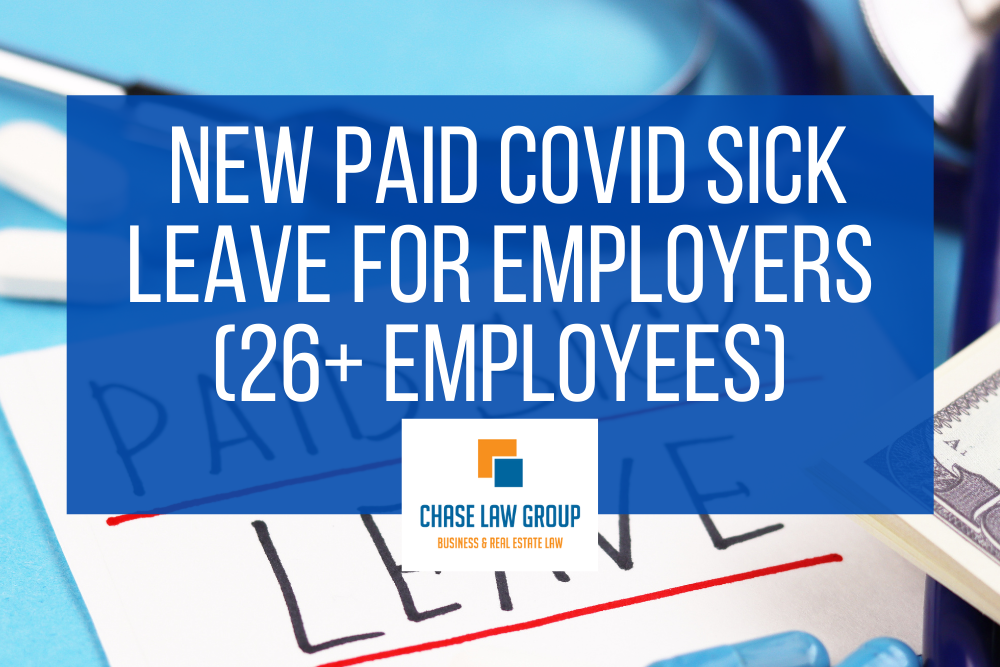
California has enacted a new paid Covid Sick Leave Law (Labor Code section 248.6) effective February 19, 2022 that applies to employers with 26 or more employees and provides potentially up to 80 hours of paid sick leave for qualified employees. The leave applies to anyone at covered employers (with 26 or more employees) from January 1, 2022 through September 20, 2022. So, workers who already missed work due to Covid would be entitled to paid leave for the time they missed subject to the requirements set forth below. (Employers who already voluntarily provided paid leave for Covid illness this... READ MORE

Several bills impacting employers have been going through the legislative process during these past months and two carryover bills AB1119 / AB95 considered “job killer” bills that would have expanded mandates on employers died in the Assembly fiscal committee. AB 1119 would have required employers to accommodate any employee with family responsibilities with uncapped protected leave for employees to request time off and likely exposed employers to costly litigation under the Fair Employment and Housing Act. If passed, this bill could have enabled an employee to challenge any adverse employment action as being related to the employee’s family responsibilities, rather... READ MORE
What is an employer required to do when an employee tests positive for COVID?
By Admin February 10, 2022 Category: Business Law
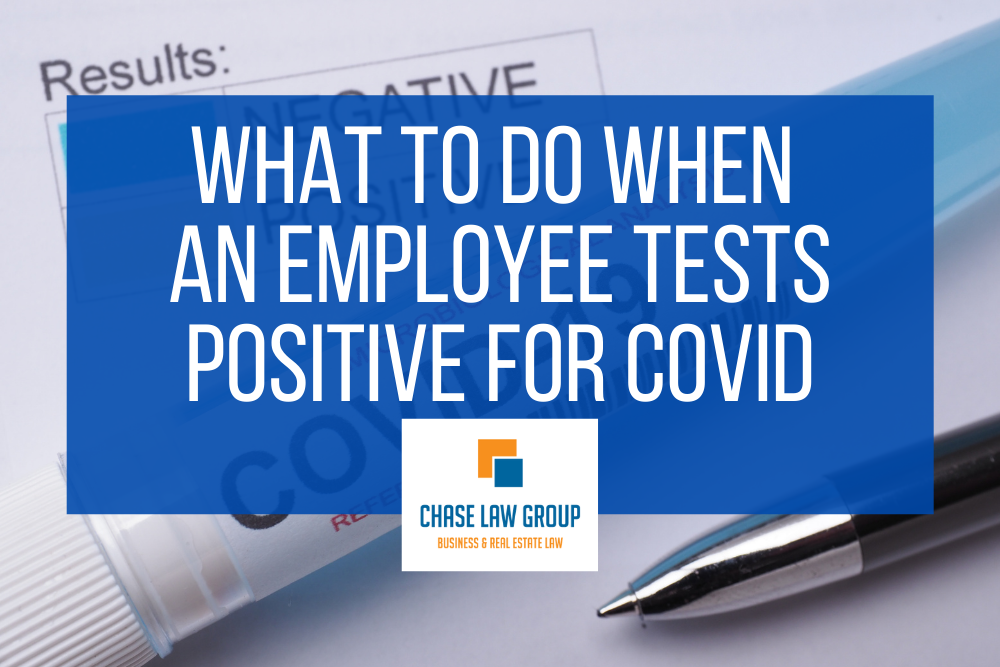
Under AB 685, when an employee tests positive for Covid, the employer must notify employees and other onsite workers who may have been exposed to COVID-19 and to report workplace outbreaks to the local health department. Notify Employees and Potentially Exposed Workers Within one business day of notice of the potential exposure, the employer must provide written notice to employees and employers of subcontracted employees who were on the premises at the same worksite as the worker diagnosed with COVID-19 during the infectious period. Written notice can be in a manner the employer normally uses to communicate employment-related information. The... READ MORE
Five Important Considerations Before Terminating An Employee
By Admin February 10, 2022 Category: Business Law
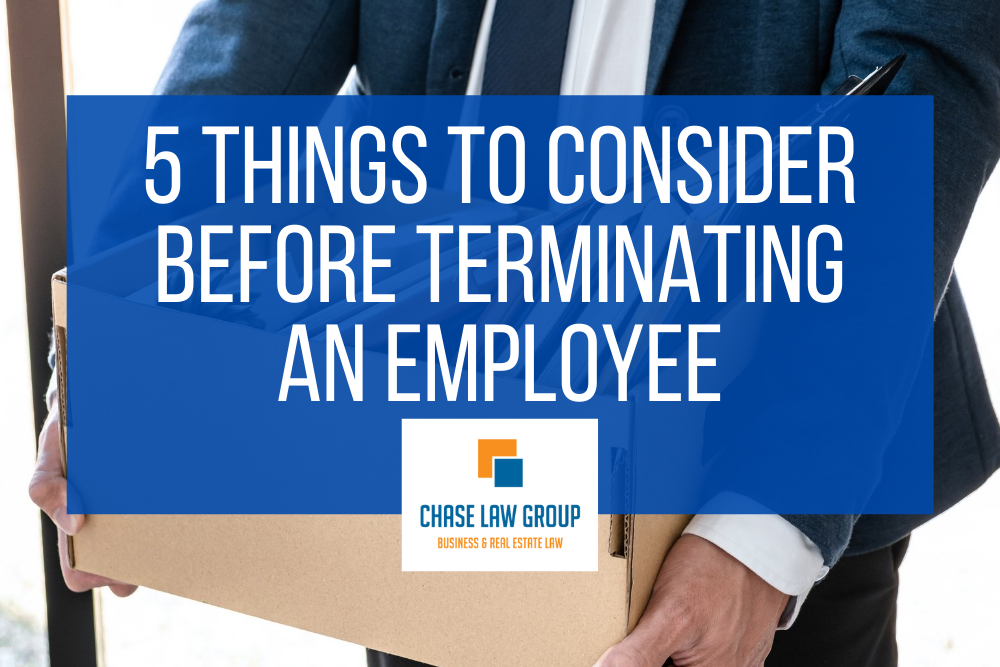
The decision to terminate an employee is often a difficult one. Whether due to finding a replacement, the stress and aggravation the employee situation has become, or due to the potential exposure and liability you could face if the separation is not handled correctly. However, by ensuring that you have taken into consideration 5 important issues when making the termination decision, you can proceed with the separation, in a fair and consistent manner which best protects your organization. Is the Decision Justified and Not A surprise to the employee? To protect the organization as well as to avoid turnover whenever... READ MORE
Required California and Federal Labor Law Postings (effective January 1, 2022)
By Admin December 13, 2021 Category: Business Law
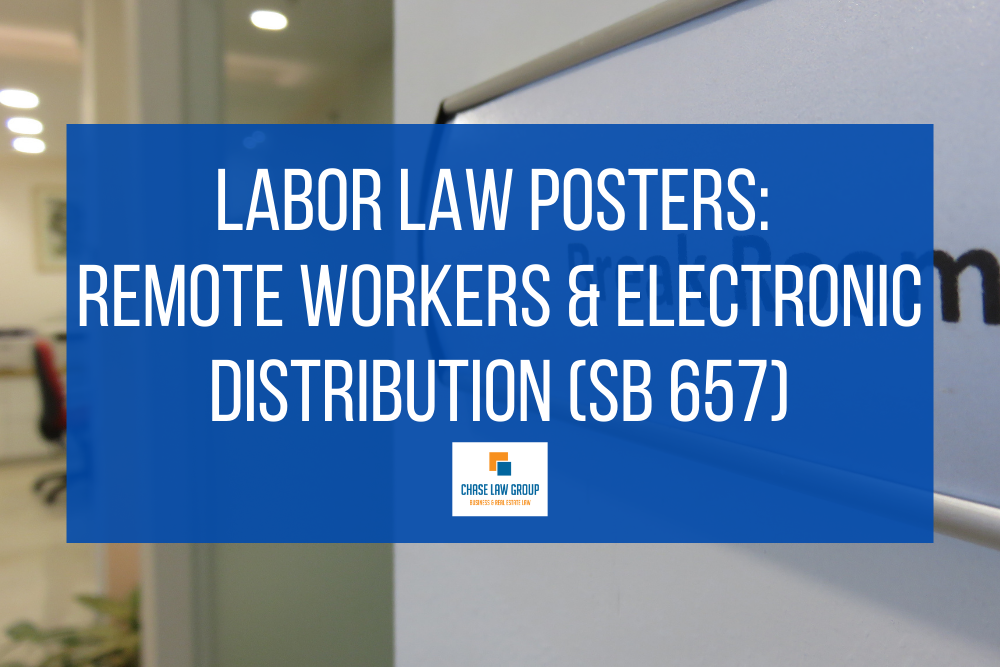
Every California employer is required to display current California and Federal Labor Law postings at each company facility; physically posted in conspicuous places in the workplace, such as break rooms or other common areas, where employees can easily read them. Remote Employees: In addition to physical postings at the company facility, employers with remote employees who work entirely from home, must mail hard copies of the required employment notices to the employees homes where they can be posted. If the remote workers periodically report to a physical location, notices must also be posted and visible in that location. Employers have... READ MORE
New Employment Laws For California Employers in 2022
By Admin December 10, 2021 Category: Business Law
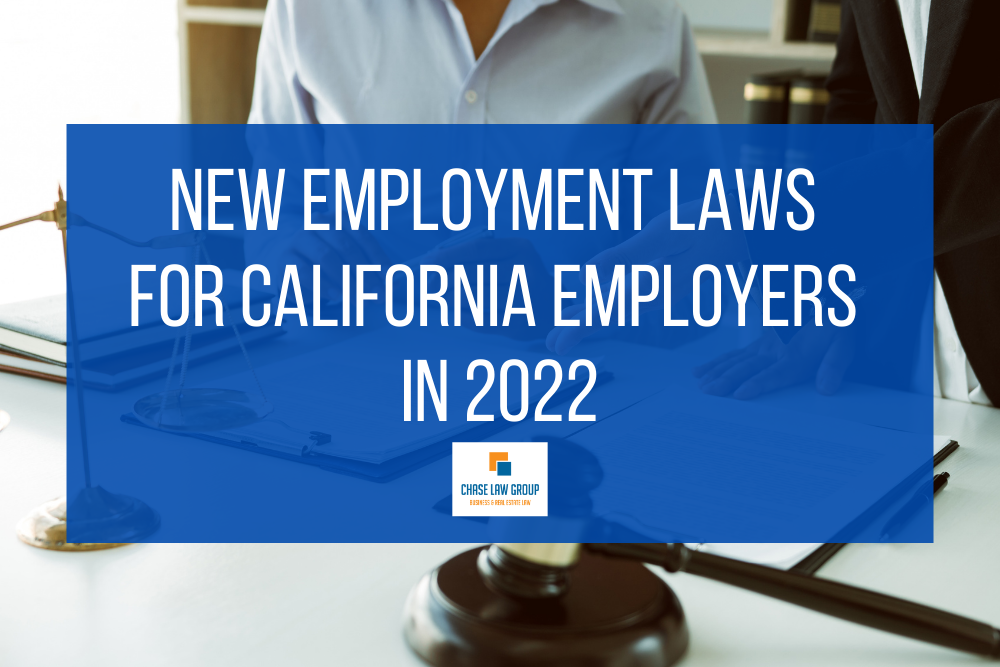
The Governor has signed into law several new pieces of legislation effective January 1, 2022. Here are the changes that impact your business. Minimum Wage Increase in California Minimum wage for California workers of Employers with 26 or more employees will increase to $15.00 per hour. For employers with 25 or fewer employees, minimum wage will be $14.00 per hour. Note that for the City of Los Angeles, minimum wage is $15.00 per hour regardless of the employer’s size. (Related Article: Be sure to read about required California and Federal Labor Law Postings and how it includes remote employees... READ MORE
Employer Covid-19 Vaccination Mandate: Handling Religious Exemptions
By Admin November 09, 2021 Category: Employment
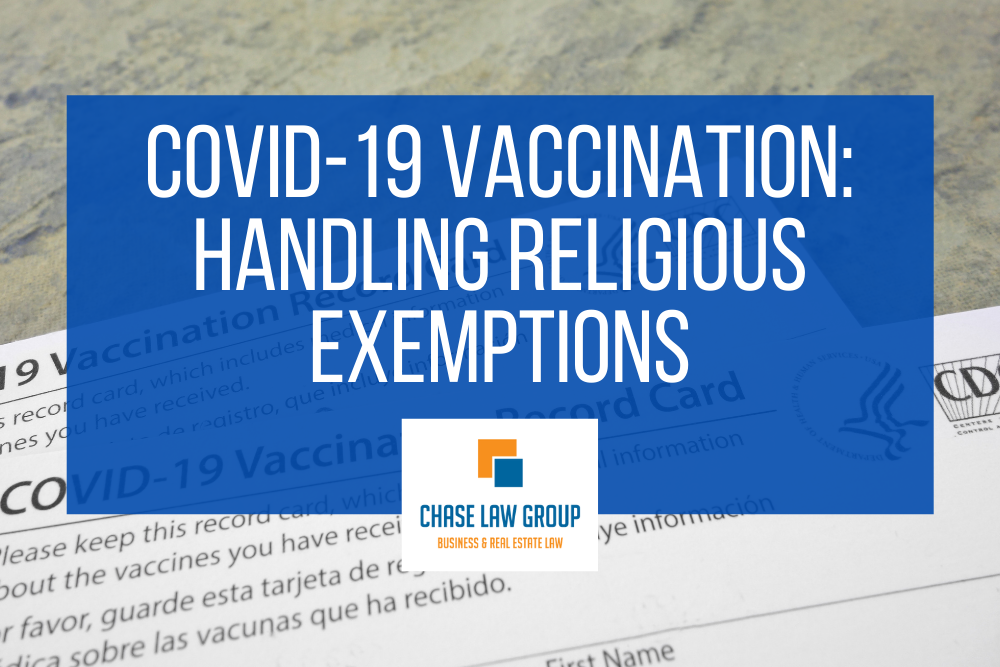
The EEOC (Equal Employment Opportunity Commission) has provided guidance on handling employee requests for exemptions from the Covid-19 vaccination mandate noting that employees must inform their employer of their request for exemption if there is a conflict between their “sincerely held religious belief” and the employer’s Covid-19 vaccination requirement. Employers should provide information to employees about the application procedures and who to contact to request religious accommodation. Employers should assume that such a request is based on a sincerely held religious belief, but if an objective basis is held for questioning the sincerity of the request or belief, employers may... READ MORE
Are your workers employees or independent contractors?
By Admin October 12, 2021 Category: Business Law

Based on the current laws in place, it’s critical that employers are properly classifying individuals providing services as either employees or independent contractors. Generally speaking, if the business has the right to control the details of how the worker’s services are performed or when and how they will be done, that individual is considered an employee. Whereas, an independent contractor is typically an individual in an independent business, profession or trade who offers their services to the public. The relationship between the worker and the business can be established by looking at the following categories: Does the company control or... READ MORE

